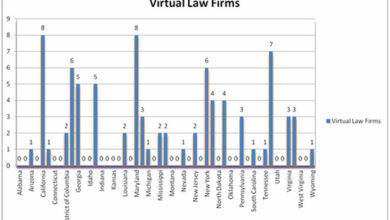Exploring the Impact of Intellectual Property Lawyers
Intellectual property (IP) is a valuable asset for individuals and businesses alike. It encompasses creations of the mind, such as inventions, literary and artistic works, symbols, names, and images used in commerce. The protection and enforcement of intellectual property rights are essential for fostering innovation and creativity. This is where intellectual property lawyers play a crucial role.
What are Intellectual Property Lawyers?
Intellectual property lawyers, also known as IP lawyers, are legal professionals who specialize in the area of intellectual property law. Their primary role is to provide legal advice and assistance to clients regarding intellectual property matters, including patents, trademarks, copyrights, and trade secrets.
Intellectual property lawyers are responsible for various tasks, such as:
- Advising clients on the protection and enforcement of their intellectual property rights
- Filing and prosecuting patent applications
- Registering trademarks and copyrights
- Drafting and negotiating licensing agreements
- Handling disputes and litigation related to intellectual property
Now, let’s explore the impact of intellectual property lawyers in greater detail.
1. Protection of Intellectual Property Rights
One of the significant contributions of intellectual property lawyers is ensuring the protection of intellectual property rights. They help individuals and businesses obtain legal protection for their innovative ideas, inventions, and creative works.
For example, a pharmaceutical company developing a new drug can rely on the expertise of an IP lawyer to secure a patent. This patent grants the company exclusive rights to manufacture, sell, and profit from the drug, preventing competitors from copying or exploiting their invention without permission.
2. Prevention of Intellectual Property Infringement
Intellectual property lawyers play a crucial role in preventing the infringement of intellectual property rights. They help clients identify potential infringements and take necessary legal actions to stop unauthorized use of their intellectual property.
For instance, if a software company discovers that a competitor is using its copyrighted code without permission, an IP lawyer can initiate legal proceedings to seek an injunction and damages for the infringement. This proactive approach helps protect the interests and investments of the original creators or inventors.
3. Licensing and Commercialization Opportunities
Intellectual property lawyers assist clients in exploring licensing and commercialization opportunities. They negotiate and draft licensing agreements that allow individuals or businesses to monetize their intellectual property through partnerships, collaborations, or franchise agreements.
For instance, a music artist can engage an IP lawyer to negotiate a licensing deal with a streaming platform. This allows the artist to earn royalties and reach a broader audience while maintaining control over their creative work.
4. Intellectual Property Dispute Resolution
Intellectual property lawyers are instrumental in resolving disputes related to intellectual property. They represent clients in negotiations, mediation, arbitration, and litigation to protect their rights and interests.
For example, if two companies claim ownership over a similar trademark, an IP lawyer can help resolve the dispute through negotiation or, if necessary, litigation. They gather evidence, analyze case law, and present persuasive arguments to support their client’s claim.
5. International Intellectual Property Protection
In today’s globalized world, intellectual property lawyers also play a crucial role in international intellectual property protection. They help clients navigate the complex web of international intellectual property laws, treaties, and agreements.
For instance, if a company wants to expand its operations internationally, an IP lawyer can provide guidance on obtaining intellectual property protection in multiple jurisdictions. This ensures that their client’s intellectual property is safeguarded against infringement and unauthorized use worldwide.
Conclusion
Intellectual property lawyers have a significant impact on the protection, enforcement, and commercialization of intellectual property rights. Their expertise and guidance help individuals and businesses navigate the complex field of intellectual property law, ensuring that their creative works, inventions, and innovations are protected and monetized appropriately.
FAQs After The Conclusion:
1. How can I find a reliable intellectual property lawyer?
Finding a reliable intellectual property lawyer can be done by seeking recommendations from trusted sources, conducting online research, and checking their qualifications and experience in intellectual property law.
2. What is the cost of hiring an intellectual property lawyer?
The cost of hiring an intellectual property lawyer can vary depending on various factors, such as the complexity of the case, the lawyer’s experience, and the jurisdiction. It is advisable to discuss the fees and billing structure with the lawyer before engaging their services.
3. Can individuals protect their intellectual property without a lawyer?
While it is possible for individuals to protect their intellectual property without a lawyer, seeking legal advice from an intellectual property lawyer is highly recommended. They have the expertise to navigate the legal complexities and ensure effective protection of intellectual property rights.
4. How long does it take to obtain a patent with the help of an IP lawyer?
The time required to obtain a patent can vary depending on the jurisdiction and the complexity of the invention. With the help of an IP lawyer, the process can generally take anywhere from several months to a few years.
5. Can intellectual property lawyers help with international patent applications?
Yes, intellectual property lawyers can assist with international patent applications. They can guide clients through the process of filing patent applications in multiple jurisdictions and help protect their intellectual property rights worldwide.
Summary
Intellectual property lawyers play a vital role in protecting and enforcing intellectual property rights. They assist clients in obtaining legal protection, preventing infringement, exploring licensing opportunities, resolving disputes, and navigating international intellectual property laws. Their expertise and guidance are crucial for individuals and businesses looking to safeguard and monetize their intellectual property assets.









